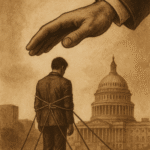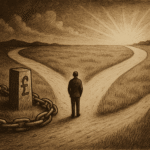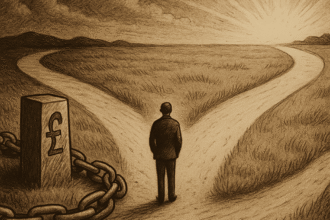While most people believe that the market is free, the reality is that the state has infiltrated every sector of the economy—shaping, regulating, and often corrupting free enterprise.
In this post, we will expose how state intervention has advanced invisibly, creating a parasitic symbiosis between political power and the productive sector.
👉 Read also:
- The Origin of the Market: Voluntary Exchange Before the State
- The Birth of the Economic State: From Monarchy to Modern Bureaucracy
- The Myth of Protection: How the State Sold Dependency as Security
The false free market
Today, when we talk about “free market”, we are referring to:
- An environment saturated with invisible regulations.
- State subsidies that choose winners and losers.
- Legal barriers that protect large corporations from competition.
The state’s colonization of the market has been so subtle that many believe the distortions are a natural part of the economy — when, in fact, they are a symptom of political intervention.
The visible hand of government
The expansion of the State in the economy happened in layers:
- Health, labor and environmental regulations: often used as a pretext to stifle small competitors and protect large, politically connected companies.
- Grants and tax incentives: diverting taxpayers’ resources to “king-friendly” companies.
- Central banks: manipulating interest rates and currencies to finance deficits and favor specific sectors.
The genuine free market has been hijacked by a web of legalized privilege.
Crony capitalism
This colonization generates the phenomenon known as “crony capitalism”:
- Big companies don’t just compete for consumers — they compete for favors from the state.
- Small businesses are crushed by bureaucracy and disproportionate tax burdens.
- Success in the market depends more on political influence than on innovation or efficiency.
The state does not protect the market — it turns it into an economic caste system.
Conclusion: Restoring the free market means limiting the power of the state
The real free market does not need to be managed, regulated or protected by the state.
It needs to be unobstructed of parasitic state intervention.
As long as the state controls credit, currency, regulation and subsidies:
- There will be no genuine economic freedom.
- There will be no fair competition.
- There will be no sustainable prosperity.
Restoring the free market requires restoring the sovereignty of the individual and restricting the economic power of the state.
📩 Do you want to understand how state privileges destroy economic freedom?
Subscribe to the Economic Radar newsletter and receive critical analysis in your email.





